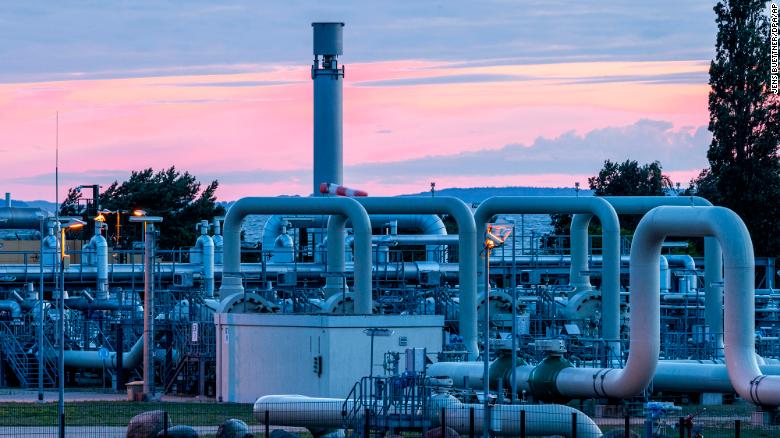Germany freed up its biggest natural gas importer

LONDON (CNN Business) The German government has stepped in to bail out one of its biggest energy companies — the latest casualty of Europe’s natural gas crisis.
Gas distributor Uniper will receive up to €15 billion ($15.3 billion) from the government after being brought to its knees by Russian supply cuts and rising spot market prices.
Uniper is Germany’s largest importer of gas, its Finnish parent Fortum said in a press release on Friday.
Under the rescue agreement, the government has committed to pay €7.7 billion ($7.8 billion) to cover potential future losses, while state-owned bank KfW will increase its current credit facility by €7 billion ($7.1 billion).
The government will also buy a 30% stake in Uniper, while Fortum will reduce its stake from 80% to 56%.
“The new geopolitical reality has shaken the European energy system and this determines a new framework for European energy companies,” Fortum CEO Marcus Rauramo said in a press release.
Rauramo said more work needs to be done to make the gas industry sustainable.
Benchmark prices have risen 89% since the war began in late February, according to data from the Intercontinental Exchange.
Announcing the deal, German Chancellor Olaf Scholz said Friday that Uniper was “in a big crisis.”
“[Uniper] is very important for the economic development of our country, for the energy supply of individual citizens, but also for many companies,” he added.
Supply crunch
Germany is particularly vulnerable to falling Russian gas exports. The European Union’s largest economy has long relied on Moscow’s gas to power its homes and heavy industry. Russian gas accounts for more than half of Uniper’s long-term supply contracts.
In June, Gazprom, Russia’s state energy company, cut gas shipments along the Nord Stream 1 pipeline — which connects Moscow’s gas directly to Germany — by 60% over a dispute over returning turbines from Canada to Russia.
But Germany has made strides in recent months to reduce its dependence on the country, cutting Russia’s share of gas imports to 35% from 55% before the war began.
Further cuts are on the way. The European Union has pledged to reduce its use of Russian gas by 66% by next year and to completely break its dependence on it by 2027.
On Wednesday, the bloc unveiled its emergency gas rationing plan which sets a target for member states to cut their gas demand by 15% between August and March next year.